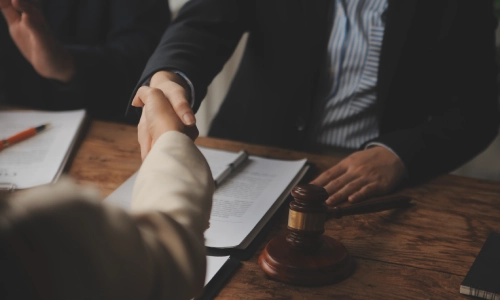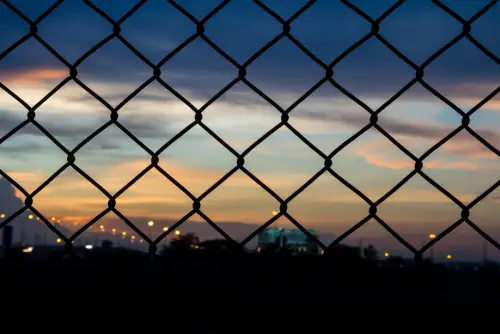
Anyone can suffer an injury anywhere. When you’re injured on someone else’s property, Singh Ahluwalia Attorneys at Law has San Antonio premises liability lawyers clients trust to fight for fair compensation.
Our attorneys offer comprehensive legal representation for accident victims at zero upfront costs. You can reach out to our professionals today to get a free consultation where we can discuss your rights and options.
Why Choose Our San Antonio Premises Liability Attorneys?
Singh Ahluwalia Attorneys at Law understands the intricacies of Texas state law. Our San Antonio premises liability attorneys build a foundation to bring localized connections and experience to our clients.
Premises liability is a specific niche of the personal injury law that requires plenty of practices and resources to handle. Our attorneys take pride in our approach from the initial consultation to the investigation, and all through the negotiation with your insurer until you get the compensation you are owed.
What Is Premises Liability?
Premises liability is a part of personal injury law that encompasses the responsibility of property owners (or people in control of a property) regarding the safety of those using it. At its core is the idea that when someone is hurt due to the conditions of the premises, the person in charge is legally responsible for the injury.
Understanding Negligence in San Antonio, TX
Like other personal injury cases, premises liability is based on negligence. Such cases require the accident victim to prove four factors:
- Duty of Care: A property owner has a duty to ensure the safety of those who enter their property.
- Invitees and licensees are owed the benefit of freedom from danger. Grocery stores are expected to check for spills, and homeowners have to inform visitors if a step is loose.
- Generally speaking, property owners do not owe safety to trespassers, with the exception of not intentionally causing harm. That is, setting traps with the purpose of injuring trespassers will leave the property owner liable.
- Texas follows an “attractive nuisance” doctrine as an exemption, which means owners are liable if a hazard or hazardous space can be reasonably said to entice children (e.g., an abandoned theme park or a contaminated pool).
- Breach of Duty: A breach of duty of care occurs when the person responsible for safety fails to maintain safety. This varies with each situation, and can range from a simple failure to warn of hazards all the way to ignoring repairs and maintenance of key features.
- Injury: Without an injury tied to the state of the premises, there is no case. For instance, if a person slips and falls because of an item they themselves brought onto the property, it is more difficult to argue that the owner is liable.
- Damages: There must be some form of economic or non-economic damages tied to the injury in order for a person to be eligible for compensation. If there are no damages, there is nothing to claim.
What Damages Can You Claim in a Premises Liability Case in Texas?
Claimable damages usually fall into one of three different categories in a personal injury case: economic, non-economic, and punitive damages.
- Economic Damages: Economic damages are the concrete and measurable costs an accident victim experiences after a serious accident. This includes coverage for one’s injuries, yes, but also — to an extent — wages and benefits lost as a result of said injuries.
- Direct treatment and care
- Long-term treatments and therapies
- Medical equipment (wheelchairs and crutches)
- Cost of services (transportation, home care, etc.)
- Salary during recovery period
- Benefits tied to employment
- Property damage
- Non-economic Damages: Also called “human losses,” these are intangible harms that generally do not have clear and concrete value, but affect the victim anyway.
- Pain and suffering
- Psychological impact
- Physical impairment or disfigurement
- Loss of consortium
- Loss of quality of life
- Punitive Damages: Punitive damages, unlike the first two categories, are not necessarily meant as compensation, but rather as a means to — as the name implies — punish the liable party and prevent future negligence. These are usually awarded only when a case reaches trial.
- Texas places caps on punitive damages: the greater of $200,000 or twice the amount of economic damages, plus up to $750,000 in non-economic damages.
Common Types of Premises Liability Cases
There are many types of accidents that can occur as a result of unsafe conditions on a property.
- Slips, Trips, and Fall Accidents
- Negligent Security
- Animal Attacks
- Fire, Water, Electric, or Toxic Hazards
- Construction Accidents
Each of these types of accidents can result in both immediate and long-term harm to visitors.
Who Pays for Damages in a Premises Liability Case?
Negligent parties are generally expected to pay for any damages they caused (for a premises liability case, this is usually the owner). This tends to be slightly more complicated in states like Texas, however, where modified comparative negligence applies and multiple parties may share fault.
Modified comparative negligence is a doctrine that allows people to recover damages even if they were partly at fault for an accident. However, unlike pure comparative negligence, modified comparative negligence requires that a claimant have less than 50% fault.
This means that if a person is owed $10,000 in damages and contributed 20% fault, then they are only eligible to receive a total of $8,000.
How Long Do I Have to File a Premises Liability Claim in San Antonio, TX?
The amount of time you have to take action for an injury in Texas is generally two years, starting from the day of the accident. This two-year period is called the statute of limitations, and if an accident victim fails to take action before it expires, they forfeit any right to compensation.
There are a few situations where the time limit can be “tolled” or extended. Most notably, if a victim was a minor during an accident, the two-year timer doesn’t start until their eighteenth birthday, giving them up to their twentieth birthday to file a claim.
The statute can also be tolled for:
- Mentally Incapacitated Individuals: The timer can be suspended for the duration of an individual’s incapacity. In the event a person is permanently disabled, they may have a legal representative file a claim on their behalf.
- Missing Defendants: If a liable party leaves the state of Texas or if they cannot be found, the statute may be paused until they are located.
In addition to these situations, there may be scenarios where victims may have less time to file a claim. This is the case with claims against government entities, which must be filed within six months.
San Antonio Premises Liability FAQ
What types of properties are covered under premises liability law?
Premises liability applies to virtually all property types, including residential homes, apartment complexes, commercial businesses, retail stores, restaurants, hotels, parking lots, construction sites, public parks, and government buildings. Whether the property is privately or publicly owned, the party responsible for maintaining the premises can be held liable for injuries caused by unsafe conditions.
What should I do immediately after being injured on someone else’s property?
First, seek medical attention right away, even if your injuries seem minor. Then, document everything: take photos of the hazardous condition, your injuries, and the surrounding area.
Gather contact information from any witnesses. Report the incident to the property owner or manager and request a copy of the incident report.
Preserve any clothing or items involved in the accident, and keep all medical records and receipts related to your treatment.
How do I prove the property owner knew about the dangerous condition?
You can establish knowledge through actual notice (the owner knew about the hazard) or constructive notice (the owner should have known through reasonable inspection). Evidence may include maintenance records, previous complaints or incident reports, surveillance footage, witness testimony about how long the hazard existed, or proof that the condition was present long enough that regular inspections should have detected it.
Do business owners have different responsibilities than residential property owners?
Yes. Commercial property owners typically have higher standards of care because they invite the public onto their premises for business purposes.
This means that they must conduct regular inspections, promptly address hazards, provide adequate lighting and security, and ensure compliance with building codes and safety regulations.
Residential property owners have duties primarily toward invited guests, though the specific obligations depend on whether the visitor is a social guest or someone present for the owner’s benefit.
Work With Our San Antonio Premises Liability Law Firm Today
If you’ve suffered harm from an accident and need to pursue compensation, Singh Ahluwalia Attorneys at Law is ready to work with you. Our San Antonio personal injury lawyers will fight for the amount you are owed. Our attorneys work on a contingency basis, so you do not have to risk anything when you work with us. We only win if you win.
Call Singh Ahluwalia Attorneys at Law today at (210) 293-7517 to schedule your case evaluation. We are standing by to get you the justice you deserve.



